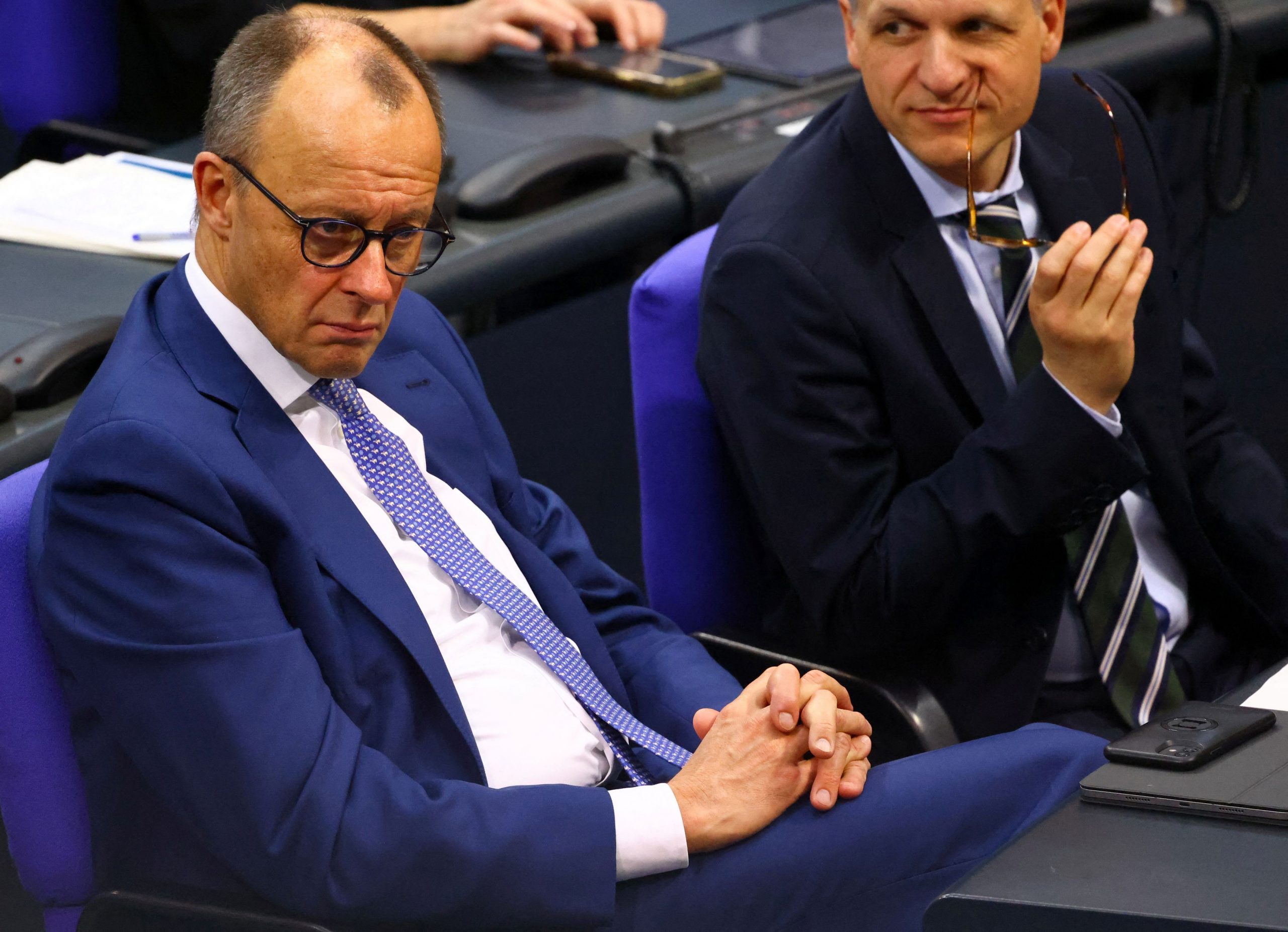In democracies, it is normal for the political climate to intensify ahead of crucial elections. Parties vying for power escalate their rhetoric to mobilize voters. Germany is no exception. With three weeks until key elections, partisan clashes have taken on a sharper edge.
But what has just unfolded in the Bundestag goes beyond the ordinary. Observers are calling it a historic shift, even a political breach of the dam: For the first time in the Federal Republic of Germany’s history, a parliamentary motion passed solely because of support from the far-right Alternative for Germany (AfD).
At the center of this political drama stands Friedrich Merz, the leader of the Christian Democratic Union (CDU), Germany’s largest opposition party, who is determined to emerge victorious in the upcoming elections. According to the latest polls, Merz’s chances of becoming the next chancellor look strong. His CDU holds a steady lead at 30 percent, ahead of the AfD at around 20 percent. Chancellor Olaf Scholz’s Social Democrats (SPD), trailing at just 16 percent, have fallen to a distant third.
By all accounts, the race seemed nearly decided—until a brutal knife attack upended the campaign. The murder of a two-year-old child and an adult sent shockwaves through the country. The perpetrator: an Afghan man whose asylum application had been denied and who, by law, should have been deported long ago.
Merz wasted no time in blaming the attack on what he sees as the government’s failed migration policies. In a move reminiscent of Donald Trump’s campaign style, he announced drastic measures that he would enact on his first day in office. The migration issue instantly became the focal point of the election, and it is expected to remain so until voters head to the polls.
The immediate trigger for the current political turmoil—there is no other way to describe the mood among government supporters—is a set of motions introduced by the CDU in the Bundestag. What makes them particularly explosive is that Merz had previously declared he did not care who supported his proposals: “Whoever wants to vote for these motions should do so. And whoever wants to reject them should reject them. I look neither to the right nor to the left. On these issues, I only look straight ahead.” Many interpreted this as an implicit invitation for the AfD to back the CDU’s initiatives. Within the far-right party, Merz’s newfound flexibility was met with delight.
The five measures Merz proposed in response to last week’s knife attack include permanent border controls and an effective ban on entry for individuals without valid identification. All asylum seekers whose applications are rejected, as well as those who commit crimes, should be detained until they can be deported.
The government is pushing back as forcefully as it can. Chancellor Scholz argues that none of the recent attacks could have been prevented by stricter laws. He further insists that Merz’s proposals contradict both Germany’s constitution and European law. Moreover, asylum applications in Germany have already dropped by 30 percent over the past year—proof, according to Scholz, that the government has tightened its policies. But for the CDU and many German voters, this is evidently not enough.
Whether Merz’s focus on migration and his tougher stance will benefit his campaign remains to be seen. Pollsters will soon provide some indication. But his strategy carries significant risks: There is already talk that the recent parliamentary victory—secured with AfD votes—may be a Pyrrhic victory. CDU loyalists who lean toward the political center might be alienated. Germany’s Christian churches, traditionally a pillar of support for the party, have already issued an open letter opposing the new hardline migration stance. Even Angela Merkel, the long-time rival of Merz within the CDU, has weighed in, criticizing his approach.
For Merz, however, the priority is to cement his image as a “law and order” politician, tapping into widespread discontent with liberal asylum policies. He appears willing to accept the support of the far-right to achieve this goal. Whether this gamble will pay off will become clear on February 23, when voters have their say.
Meanwhile, AfD strategists are playing the long game. For them, the joint vote with the CDU, tolerated by Friedrich Merz, marks a critical milestone. “If the AfD ever comes to power in Germany,” a German newspaper observed, “people will look back at this January day in 2025 and say: This is where it all began.”
Dr. Ronald Meinardus is a Senior Research Fellow at the Hellenic Foundation for European and Foreign Policy (ELIAMEP).



